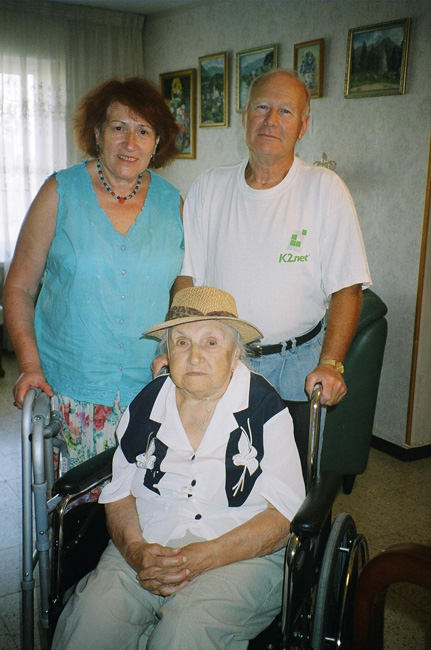In a world of total moral collapse during the Holocaust, there was a small minority who mustered extraordinary courage to uphold human values. These were the Righteous Among the Nations. They stand in stark contrast to the mainstream of indifference and hostility that prevailed during the Holocaust. Contrary to the general trend, these rescuers regarded Jews as fellow human beings who came within the bounds of their universe of obligation.
This piece highlights one story of Righteous Among the Nations, in an effort to recognize these heroic individuals. For educators, this topic lends itself well to a diverse classroom, as it includes groups other than Jews, and makes the topic more accessible to a larger group of students.
The Story of Vladimir and Galina Imshennik from Lithuania
Vladimir Imshennik, a Russian Orthodox priest, and his wife Galina, were residing in the village of Nosilowo, Molodeczno District, Wilno County, Poland (nowadays the region is a part of Belarus). From 1940 to 1950 Vladimir served as rector of the village Church of Transfiguration.
At the end of June 1941 the area was occupied by the Germans, and in October of the same year a ghetto was established in the nearby town of Lebiedziew. Among its inmates was one of Vladimir’s acquaintances, a Jewish doctor by the name of Abraham Zodziszski. Dr. Zodziszski was permitted to leave the ghetto to attend to his non-Jewish patients, and used this opportunity to smuggle out Jewish children and give them to his patients for care and saving. In December 1941 he asked the Imshenniks whether they would agree to save his own two-year-old daughter, Yelena.
Although Vladimir and Galina had a six-year-old son, and shared the house with Galina’s elderly parents, despite the great danger, they were unable to turn a blind eye to the doctor’s plight, and decided to take his child. On December 5, 1941 Dr. Zodziszski brought his little daughter to her future rescuers. At the beginning the Imshenniks kept her completely out of sight, but eventually she learned Russian and got used to her new family. With time, memory of her prewar life faded away and she began calling her hosts “Mommy” and “Daddy.” The priest and his wife became very attached to the little girl.
On June 24, 1942 the Germans liquidated the ghetto in Lebiedziew. Over 600 people remained and they were rounded up and taken to a large cowshed near Markow and burned alive. Sixty four members of Yelena’s family were murdered that day, among them her father, maternal grandparents, aunt, uncles, and their offspring.
Sometime after the liquidation of the ghetto, someone anonymously tipped off the Gestapo telling them that a priest was harboring a Jewish child. Vladimir and Galina were summoned for interrogation; even little Yelena was questioned. Luckily for all of them, the little girl no longer remembered her biological parents and the interrogators did not find evidence of her Jewish origin.
Yelena continued living with the Imshenniks, enjoying their loving care. After liberation in July 1944 nobody came to claim her, and the rescuers concluded that her family would not return. Yet, after nearly one year, Yelena’s mother, Maria, appeared; she had survived in the forests with a Soviet partisan unit. Yelena’s older brother Grigory survived, hidden and saved by a Russian family from Vilna.
Parting from the child they had cared for and had come to consider their own was extremely difficult for the Imshenniks, and the return to her family was probably very hard for Yelena. She, along with her mother and brother settled in Leningrad (today St. Petersburg), but kept in touch with the Imshenniks, exchanging letters and visiting them.
In the mid 1950s Vladimir and Galina moved to Lvov, Ukraine, with their son. After her husband’s death in 1978, Galina began visiting Yelena in Leningrad more frequently and would stay with her for longer periods. In 1991, when Yelena and her husband, Yury Dolgov, decided to immigrate to Israel, to join their daughter Natasha, they took Galina with them. For nearly 20 years, Galina lived in Jerusalem with Yelena, the girl she had rescued.
On December 14, 1993, Vladimir and Galina Imshennik were recognized by Yad Vashem as Righteous Among the Nations.
Galina passed away on February 28, 2011, at the age of 98.








